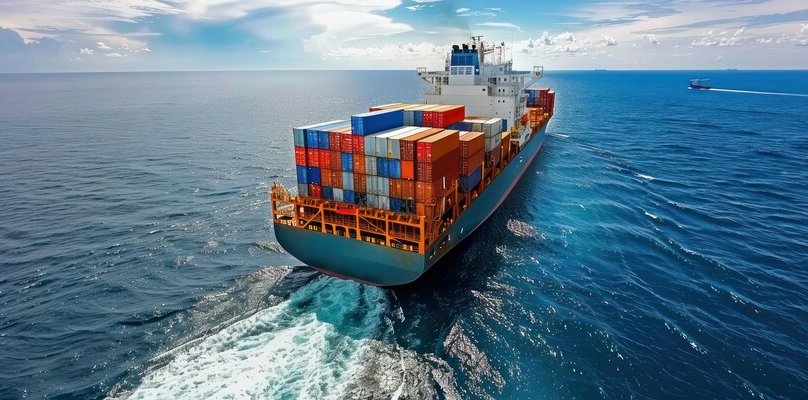
When you need to send goods across the ocean, two common methods exist: FCL (Full Container Load) and LCL (Less than Container Load). These methods are both great, but which one works better for your business? Understanding their differences can help you decide. In this guide, we will explain both options and help you choose the best sea freight shipping for your business.
What is Sea Freight Shipping?
Sea freight shipping involves moving goods on large ships over oceans. It remains one of the cheapest ways to send goods to another country. Businesses pack their goods into containers—big steel boxes used to hold cargo. These containers come in different sizes, with 20-foot and 40-foot containers being the most common.
Sea freight shipping uses two main methods: FCL and LCL. Therefore, each works better depending on how many goods you need to send.
FCL (Full Container Load)
What is FCL?
In FCL, a full container holds your goods, and nothing else. So, you pay for the entire container, no matter how much space you use.
Advantages of FCL
- Quicker Shipping
FCL delivers goods faster because the container doesn’t need to stop and pick up other shipments. It heads straight to its destination. - Less Damage
Since your goods don’t share space with other items, they face a smaller chance of getting damaged. - Great for Big Shipments
FCL becomes cost-effective when you have enough goods to fill the whole container. The more space you use, the better the deal. - More Secure
The container stays locked up tight, which reduces the risk of anyone tampering with your goods.
Disadvantages of FCL
- Costly for Small Shipments
If your goods don’t fill the entire container, FCL can get expensive. You’ll still pay for the whole thing, even if you don’t use all the space. - Requires Large Storage Space
You need plenty of room to store everything once it arrives at your destination.
LCL (Less than Container Load)
What is LCL?
In LCL, your goods share space with others in a container. You only pay for the space your items take up, not the entire container.
Advantages of LCL
- Cheaper for Small Shipments
If you’re sending fewer goods, LCL costs less because you only pay for the space you use. - Less Storage Needed
You don’t need a large space to store the goods when they arrive since you’re shipping smaller amounts. - Flexible
LCL lets you send smaller shipments more often, which is useful if you don’t need to send goods regularly.
Disadvantages of LCL
- Takes Longer
LCL shipments take more time because the container must gather goods from different businesses before leaving. - More Risk of Damage
Since your goods share the container with others, they face more handling, which raises the risk of damage. - Extra Handling Costs
More handling can lead to extra costs compared to FCL.
Key Differences Between FCL and LCL
1. Cost
- FCL: Costs less for large shipments because you pay a fixed price for the entire container.
- LCL: Costs less for small shipments since you only pay for the space your goods use.
2. Shipping Time
- FCL: Moves faster as your goods don’t wait for other shipments to fill the container.
- LCL: Moves slower because the container gathers goods from many businesses before setting off.
3. Risk of Damage
- FCL: Your goods stay safer since they don’t mix with others.
- LCL: The risk of damage increases since different goods share space in the container.
4. Storage Needs
- FCL: Requires a bigger space for storage once your goods arrive because you are sending more items.
- LCL: Requires less space since you’re sending fewer goods.
How to Choose Between FCL and LCL?
When deciding between FCL and LCL, consider several important factors, such as how much you need to send, your budget, and how soon you need the goods. Here are some tips to help you make the right decision:
1. Look at How Much You’re Shipping
If you’re sending enough to fill a whole container, FCL gives you the best value. But if you’re sending a smaller amount, LCL can save you money since you’re only paying for the space you use.
2. Think About How Fast You Need It
If you need your goods quickly, FCL works better since it delivers faster. LCL takes longer and may not be ideal if time is important to you.
3. Check How Fragile Your Goods Are
FCL offers more protection for your goods, which is especially important if they are delicate. Since LCL involves sharing space with other businesses’ goods, there’s a higher chance of your items getting damaged during handling.
4. Consider Your Storage Space
If you don’t have enough room to store a full container’s worth of goods, LCL could be a better option. LCL lets you send smaller batches, so you can manage your inventory more easily.
5. Factor In Your Budget
LCL provides a budget-friendly option if you’re shipping smaller loads. However, if you’re sending a lot of goods, FCL offers better value for your money in the long run.
Other Considerations for Sea Freight Shipping
In addition to choosing between FCL and LCL, other things can affect your shipping decision. Below are a few things to keep in mind:
1. Shipping Routes
Some sea freight shipping routes work faster and cost less than others. Check which route your goods will travel and how it affects the price and delivery time.
2. Port Fees
Different ports charge different fees. Be sure to add these costs when figuring out the total cost of shipping.
3. Customs Rules
There are also specific customs procedures for shipping goods, involving the filing of appropriate papers. In this respect, everything has to be in place to prevent undesirable delays or extra costs.
4. Insurance
Sea freight is also exposed to a number of risks during shipment, including damage, theft, and loss, among others. You can buy insurance that covers the goods against these risks.
The End Note
The choice between FCL or LCL completely depends on the needs of your business. If you have very huge shipments and are looking to have them delivered promptly, definitely FCL will be the better option. In case the shipment is small and less important, LCL offers flexibility at lower upfront costs. Your shipment size, budget, and level of protection will control which option best fits the sea freight solution.



